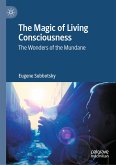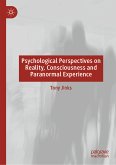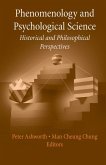Proposing provocative new directions in critical thinking, Clinical Psychology and the Philosophy of Science asks readers to revisit what they know--and especially how they came to know it. Offering a concise guide to the central concepts philosophy uses to make sense of science, this readable treatise persuades philosophers of science to look critically at the foundational problems of psychology, and clinicians to re-examine the theories and assumptions that fuel their approaches to their work. The author makes a robust case for multiple viewpoints as not only a necessity, but also a source of strength befitting living schools of thought. The book argues that the ongoing tensions between psychology and philosophy benefit both sides as it:
- Identifies the major methods of philosophical inquiry.
- Sets out key questions in the philosophy of science of relevance to psychology.
- Explains the contemporary role of epistemology.
- Analyzes the impact on psychological inquiry of Popper, Kuhn, and their critics.
- Dissects Skinner's behavioral theory of science.
- Considers philosophical problems in the APA's code of ethics.
For professionals in both disciplines, Clinical Psychology and the Philosophy of Science is an elegant vehicle for their intimately related fields to meet each other halfway, and a springboard for the continued evolution of both.
Dieser Download kann aus rechtlichen Gründen nur mit Rechnungsadresse in A, B, BG, CY, CZ, D, DK, EW, E, FIN, F, GR, HR, H, IRL, I, LT, L, LR, M, NL, PL, P, R, S, SLO, SK ausgeliefert werden.
"William O'Donohue, accordingly, deserves our praise in making a serious effort to cross disciplines-but especially disciplines as messy as psychology and philosophy...For O'Donohue, there are insights to be gained from each of the writers that he considers, as well as from postmodernism, and there is currently no consensus among philosophers on what might replace logical positivism. He concludes, accordingly, that one must be open to a "pluralism of perspectives" (p. 3). This conclusion is safe if it means that we need to assess the criticisms of the prevailing approaches and seek to frame them into a coherent philosophy of science. Given that psychology is a mansion with many rooms, O'Donohue avers that it may not be possible to construct a coherent philosophy of science that illuminates psychology. But some, at least, of the insights-even of postmodernism, fundamentally a philosophy of antiscience-are present in writers in very strong philosophy of science traditions."
Peter T. Manus
October 9, 2013, Vol. 58, Release 41, Article 5
PsycCRITIQUES









